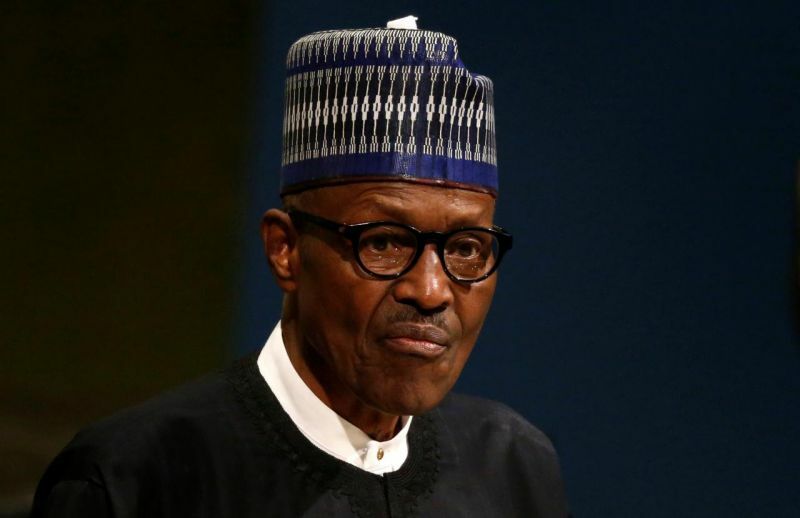FILE PHOTO: Nigerian President Muhammadu Buhari addresses the 72nd United Nations General Assembly at U.N. headquarters in New York, U.S., September 19, 2017. | REUTERS/Shannon Stapleton/File PhotoA security agency in Nigeria has ordered a prominent Catholic bishop to appear for questioning over his remarks that the country’s government, led by President Muhammadu Buhari, has failed to stop kidnappings and persecution of Christians, according to media reports.The State Security Service, which reports to Nigeria’s president, has asked Bishop Matthew Kukah of the Sokoto diocese in northwest Nigeria to present himself for questioning after he wrote in his Christmas message that the government seems to have left the fate of Nigerians in the hands of “evil men,” The National Catholic Register reported.In his message, the bishop referred to more than 100 girls who were abducted by the Boko Haram terror group who are yet to be rescued as well as “hundreds of other children whose captures were less dramatic,” according to CNA’s partner agency ACI Africa.“Nothing expresses the powerlessness of the families like the silence of state at the federal level,” he said. “We have before us a government totally oblivious to the cherished values of the sacredness of life. Tales and promises about planned rescues have since deteriorated into mere whispers.”He continued, “Every day, we hear of failure of intelligence, yet, those experts who provide intelligence claim that they have always done their duty diligently and efficiently. Does the President of the Federal Republic of Nigeria not believe that he owes parents and citizens answers as to where our children are and when they are coming home?”The bishop warned that Nigeria is “fully in the grip of evil, adding: “Today, a feeling of vindication only saddens me as I have watched the north break into a cacophony of quarrelsome blame games over our tragic situation.”The People’s Gazette reports that the State Security Service is a “federal secret police” that holds a reputation for intimidating and arresting government critics. The Southern Kaduna People’s Union, which has spoken out against insecurity in the Kaduna state, has urged Bishop Kukah not to accept the agency’s invitation for questioning, arguing that other critics who have been called in for questioning have been silenced. SOKAPU National Youth Leader Issac John Sirjay argued in a statement Monday that the government has “extended invitations to some people who had at one time or the other accepted invitations, particularly persons considered to be critical of the nepotistic and clandestine leadership style of the Buhari administration.”“We mourned the sudden demise of Dr. Obadiah Mailafia of blessed memory who until his death was a dogged critic of this administration and a regular visitor at one of the DSS facilities,” Sirjay’s statement reads, according to the United States-based outlet Sahara Reporters. “Without ruling out any possibility of harm, we consider the invitation of Bishop Kukah by the DSS as one of such ploy designed to silence him at all cost.”“In light of the above, it suffices to state boldly that the DSS has unarguably deviated from its core mandate of protecting national security and has become a willing tool for the suppression of free speech,” the statement added. Last November, a Nigerian journalist and Roman Catholic, Luka Binniyat, was detained allegedly for his reporting about attacks against predominantly Christian communities and the government’s response.Binniyat, a father who writes for the anti-communist newspaper Epoch Times, was arrested and arraigned at the Barnawa Magistrate’s Court in Kaduna state. He was charged with cyberstalking — a charge critics say is often used in the African country to silence the media.He was arrested after writing an Oct. 29 article titled “In Nigeria, Police Decry Massacres as ‘Wicked’ But Make No Arrests.”The article is part of The Epoch Times’ coverage of the deadly attacks targeting the predominantly-Christian farming communities in the West African country’s Middle Belt.Binniyat pushed back against government official’s characterization of an attack on Christian farmers in the state as a “clash.” The Nigerian government has long claimed that violence in Nigeria’s Middle Belt results from decades-old farmer-herder clashes that have been exacerbated in recent years by more herders migrating south due to desertification and climate change. Critics have warned that the Nigerian government’s lack of action in the Middle Belt could result in a religious “genocide.” But the Nigerian government has pushed back on such assertions.According to a recent study from the Anambra-based International Society for Civil Liberties and Rule of Law, at least 60,000 Christians have been killed in the past two decades in Nigeria. The organization, which is run by Christian criminologist Emeka Umeagbalasi, reports that hundreds of churches have been threatened, attacked, closed, destroyed or burned in 2021. In the northern parts of Nigeria, criminal groups and terrorists have conducted several large-scale abductions of school children in recent years. In 2014, about 276 schoolgirls were kidnapped from a school in Chibok in the northeast Borno state by the Islamic radical group Boko Haram. As many as 112 of those girls remain missing. In February 2021, armed militants kidnapped nearly 300 schoolgirls from the Government Girls Science Secondary School in Jangebe, Zamfara state. The children were released weeks later.Watchdog group Open Doors USA, which monitors persecution in over 60 countries, ranks Nigeria as the ninth-worst country when it comes to Christian persecution. Originally published in The Christian Post.

